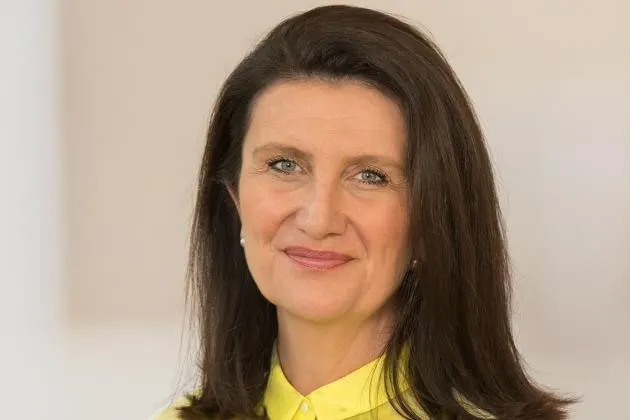Richemont Names Bérangère Ruchat to New Role of Sustainability Chief


Compagnie Financière Richemont, which in past years has been accelerating its ESG efforts, has named Dr. Bérangère Ruchat as its first chief sustainability officer. Ruchat took up her role on Tuesday and will report to Burkhart Grund, chief finance officer.
Richemont, parent of brands including Cartier, IWC, Dunhill and Chloé, said Ruchat will be building upon Richemont’s “top-ranking achievements in ESG reporting and commitment to Science Based Targets,” and will bring her “deep sustainability expertise and collaborative track record” to further develop the group’s vision and step up its sustainability ambition.
Ruchat joins from Switzerland’s Firmenich Group, where she was chief sustainability officer and, more recently, senior vice president sustainability. During her 12-year tenure there, Richemont said Ruchat established unique partnerships, drove Firmenich sustainability strategy and led the group ESG reporting.
Before that, Ruchat was the director of partnerships at Global Alliance for Improved Nutrition, having led the Partners in Action Program at the United Nations System Staff College, which she joined in 2000.
Ruchat was acknowledged by the World Business Council for Sustainable Development Leading Women Awards for her work in advancing the United Nations Sustainable Development Goals in 2016. She also received the Head of Sustainability of the Year award by the Ethical Corporation in 2015.
She holds two master’s degrees in political science and public administration, and a Ph.D. in international relations from the Maxwell School of Citizenship and Public Affairs at Syracuse University, New York. Ruchat also has postgraduate qualifications in public private partnership management from Cambridge University and in social innovation from Stanford University.
Richemont has been ramping up its ESG efforts over the past few years.
In December, the company was recognized for its leadership in corporate sustainability by global environmental nonprofit CDP, securing a place on CDP’s A List for tackling climate change. The company has also set up a Governance and Sustainability Committee.
It has been publishing sustainability reports for the past 15 years, but last year accelerated its efforts, asking EY to audit its processes, progress and adherence to the U.N.’s Sustainable Development, and other goals.
Last September, Richemont’s goals, developed in line with the objectives of the Paris Agreement, were validated by the Science Based Targets initiative. The report’s author Matthew Kilgarriff remains group director of corporate social responsibility and will report to Ruchat.
At group level, Richemont is committing to reduce absolute Scope 1 and 2 greenhouse gas emissions 46 percent by 2030 from a 2019 base year. It is also committing to cut Scope 3 GHG emissions from “purchased goods and services and business travel” by 55 percent per dollar of profit by 2030.












